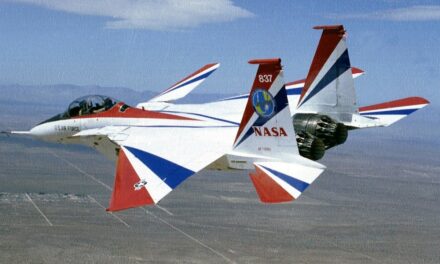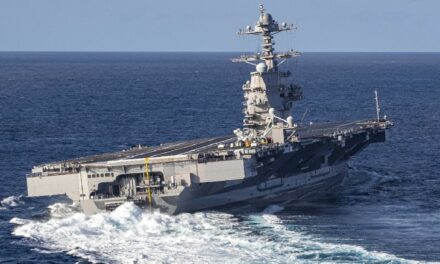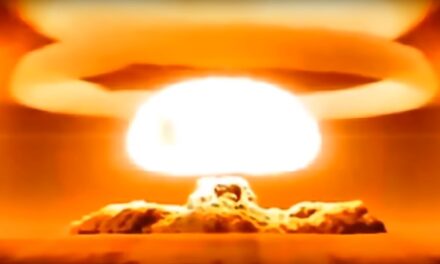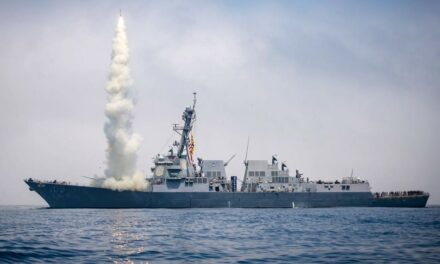We support our Publishers and Content Creators. You can view this story on their website by CLICKING HERE.
Imperial Japan guessed poorly at Pearl Harbor. It misjudged the impact of its actions on a peacetime strategic competitor, made a foe of that competitor, and set itself on the path to cataclysm.
Carl von Clausewitz would smile. Military folk like to think of strategy, operational art, and tactics as a science. That attitude simplifies things, implying that battlefield success results from handling variables, equations, inputs and outputs, and whatnot. There is a reason officer candidates study courses in naval or military science as a precursor to commissioning. And the numerical view is a comforting view. It suggests we control our destiny, or at least can predict it. We can do math.
Clausewitz—history’s foremost military sage, and a man who spent a lifetime at arms—begs to differ.
The Prussian soldier-scribe allows that there is a pronounced scientific dimension to martial endeavors. Logistics is one aspect of military operations that lends itself to the quantitative approach. It’s about getting supplies from point A to point B in sufficient quantity, ensuring that forces bestriding dusty battlegrounds have ammunition and stores adequate to prevail. Weapons production is another. It depends first on scientific R&D, and subsequently on industrial methods and infrastructure. Etc.
Science plays its part.
Yet Clausewitz ultimately adjudges warmaking more art than science. That’s because war pits living combatant against living combatant, and human motives and deeds are impossible to quantify with precision. Human beings are unpredictable because we act not just out of rational calculations of cost, benefit, and risk. We also act out of less-than-rational passions—chiefly dark, incendiary passions—such as envy, hatred, vengeance, and spite. Try fixing objective units of measurement for those. There are none.
Now set human competitors against one another. Deception and misdirection constitute the core of strategy, operations, and tactics. Interaction makes war a fractal environment. Warfare defies forecasting.
That’s why Clausewitz portrays guesswork as the soul of strategy-making. Sizing up a foe is crucial for the victor, and it’s more art than science. The aspirant to battlefield success, he counsels, “must guess, so to speak: guess whether the first shock of battle will steel the enemy’s resolve and stiffen his resistance, or whether, like a Bologna flask, it will shatter as soon as its surface is scratched.” The leadership must “guess whether the burning pain of the injury he has been dealt will make the enemy collapse with exhaustion or, like a wounded bull, arouse his rage.”
Guess, guess, guess.
A bologna flask is a gimmick. It’s blown, like all scientific glassware, but then its maker cools it in such a manner that it’s stone-hard on the outside yet splinters at the slightest shock from within. For Clausewitz that makes it a perfect metaphor for warfare. Every warring society depends on internal relationships among the government, the armed forces, and the populace. Some societies are strong and resolute. They endure and lash out with extreme prejudice after an antagonist strikes a blow. Others come apart under stress, much like Clausewitz’s bologna flask. They collapse, either going down to defeat at the outset of combat or suing for peace soon after.
Worse for military planners, a hostile society could be a bologna flask at one time and a wounded bull at another. Which it is depends on circumstances.
Japanese military magnates guessed wrong in 1941. They understood that the United States boasted industrial and thus military potential vastly greater than their middleweight island empire could muster. But they concluded that America would not rouse itself—tapping that potential for military gain—if deprived of its Pacific Fleet at Pearl Harbor. Rather than take on the effort and expense of rebuilding the fleet, it would cede the Western Pacific to Japan, grudgingly abandoning such island holdings as Guam and the Philippines, and reconcile itself to the new Japanese-led regional order.
In other words, Japan saw its enemy as a bologna flask despite its imposing visage.
But the United States did not collapse with exhaustion after December 7. Instead the Imperial Japanese Navy’s aircraft-carrier raid provoked rage worthy of a wounded bull. Or as the Hollywood version of fleet commander Isoroku Yamamoto lamented in the aftermath of Pearl Harbor, the attack awoke a sleeping giant and filled him with terrible resolve. (The real-life Admiral Yamamoto wrote something to that effect in his diary, although he phrased it less lyrically.)
Power and resolve: that’s a textbook definition of armed strength. A giant possesses titanic physical might. Terrible resolve motivates him to deploy his power to smite down his enemies. Think twice before tugging on Superman’s cape.
In a real sense, then, Japan defeated itself at Pearl Harbor through faulty Clausewitzian guesswork. Such misjudgments bestrew diplomatic and military history. Russia saw Ukraine as a bologna flask in 2022. Moscow reckoned that its defenders, government, and populace would capitulate within days of an assault. While not a sleeping giant, Ukrainian society summoned the willpower to stand against daunting odds for pushing three years, and counting. It became its strongest self. One hopes prospective adversaries—looking at you, Xi Jinping—canvass history for lessons before launching similar military misadventures.
Sobriety is wisdom.
About the Author: Dr. James Holmes
Dr. James Holmes is J. C. Wylie Chair of Maritime Strategy at the Naval War College and a Faculty Fellow at the University of Georgia School of Public and International Affairs. The views voiced here are his alone.

 Conservative
Conservative  Search
Search Trending
Trending Current News
Current News 





